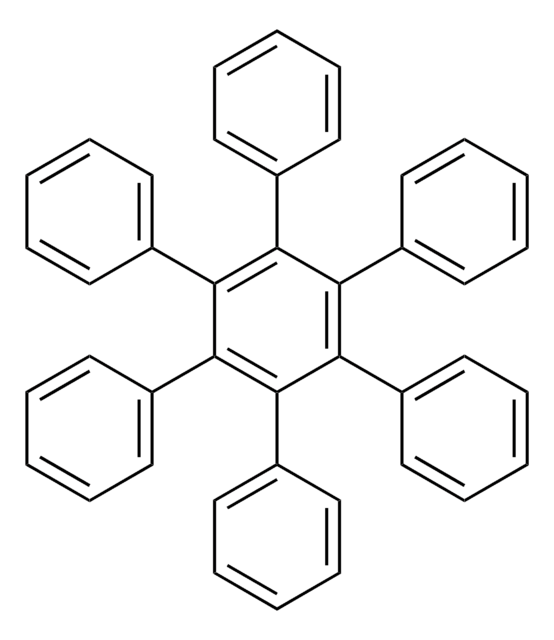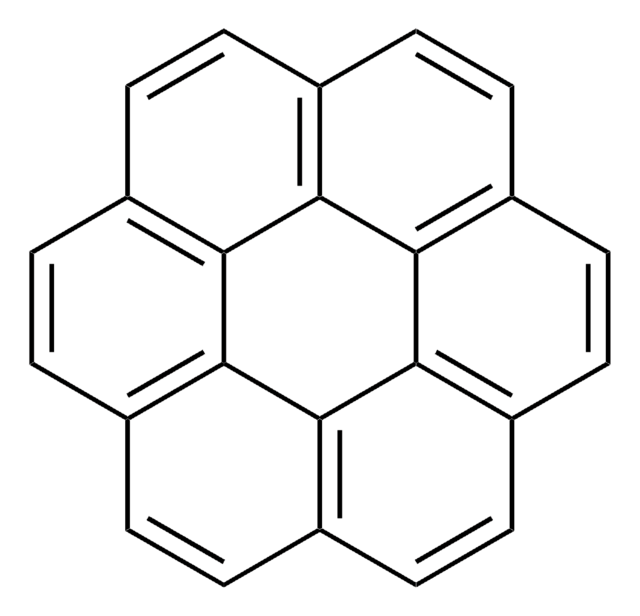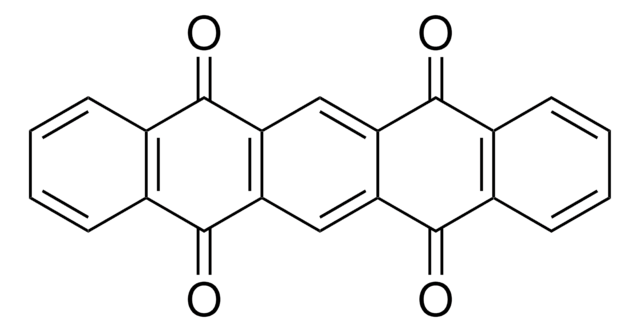About This Item
Recommended Products
assay
99%
form
powder
mp
372-374 °C (subl.)
solubility
organic solvents: slightly soluble
orbital energy
HOMO 5 eV
LUMO 3 eV
OPV device performance
ITO/pentacene/C60/BCP/Al
semiconductor properties
P-type (mobility=0.4-3 cm2/V·s) (on/off ratio=1E5-1E8)
SMILES string
c1ccc2cc3cc4cc5ccccc5cc4cc3cc2c1
InChI
1S/C22H14/c1-2-6-16-10-20-14-22-12-18-8-4-3-7-17(18)11-21(22)13-19(20)9-15(16)5-1/h1-14H
InChI key
SLIUAWYAILUBJU-UHFFFAOYSA-N
Looking for similar products? Visit Product Comparison Guide
Related Categories
General description
Application
Packaging
Storage Class
11 - Combustible Solids
wgk_germany
WGK 3
flash_point_f
Not applicable
flash_point_c
Not applicable
ppe
Eyeshields, Gloves, type N95 (US)
Certificates of Analysis (COA)
Search for Certificates of Analysis (COA) by entering the products Lot/Batch Number. Lot and Batch Numbers can be found on a product’s label following the words ‘Lot’ or ‘Batch’.
Already Own This Product?
Find documentation for the products that you have recently purchased in the Document Library.
Customers Also Viewed
Articles
Small molecular weight organic semiconductors are promising for flexible transistor applications in next-gen soft electronics.
Intrinsically stretchable active layers for organic field-effect transistors (OFET) are discussed. Polymer structural modification & post-polymerization modifications are 2 methods to achieve this.
Solution-processed organic photovoltaic devices (OPVs) have emerged as a promising clean energy generating technology due to their ease of fabrication, potential to enable low-cost manufacturing via printing or coating techniques, and ability to be incorporated onto light weight, flexible substrates.
Thin, lightweight, and flexible electronic devices meet widespread demand for scalable, portable, and robust technology.
Our team of scientists has experience in all areas of research including Life Science, Material Science, Chemical Synthesis, Chromatography, Analytical and many others.
Contact Technical Service

![Benz[b]anthracene 98%](/deepweb/assets/sigmaaldrich/product/structures/197/885/3a015625-5e09-4f15-8b17-4cc285304fc7/640/3a015625-5e09-4f15-8b17-4cc285304fc7.png)

![Dinaphtho[2,3-b:2′,3′-f]thieno[3,2-b]thiophene sublimed grade, 99%](/deepweb/assets/sigmaaldrich/product/structures/196/451/8a650b8e-abbb-4ef1-9be4-73f223165062/640/8a650b8e-abbb-4ef1-9be4-73f223165062.png)



